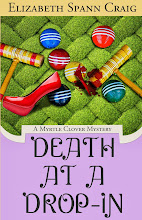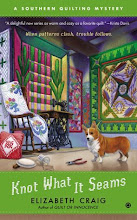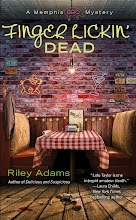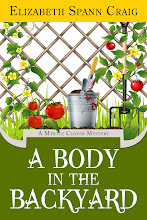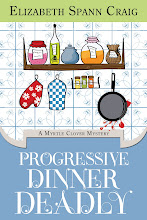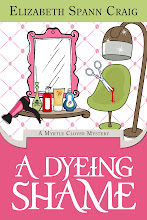On Tuesday and Wednesday, I was in Atlanta, Georgia, with my daughter and friends at the American Girl doll store.
If you’re not familiar with the American Girl line…you must not be an American resident with an almost-9 year old girl. :)
Each doll represents a different time period in American history. The dolls have their own book series, movies, accessories, outfits, and furniture that you can (if you have lots and lots of money) opt to purchase.
My daughter is only slightly interested in hearing about writing conferences and signing that I go to (she’s even gone to a couple and ended up buying up half the bookstore while I was at the signing table), but she was fascinated when she heard I was on a panel with an American Girl author at Malice Domestic.
There aren’t that many doll stores for American Girl. Usually you order everything online. So this was a special trip. The store also has a beauty parlor for the dolls where you can choose a hairstyle and the stylist does the hair right there in front of you (the dolly is in a salon chair.)
salon chair.)
There’s a restaurant at the store, so we booked dinner there. You have it with your dolls (they sit in booster seats…see pic at top of post.)
Then the hotel we stayed at offered a tea party for the dolls. So the girls took the dolls down to the hotel lobby for cookies and milk (and empty tea cups for the dolls.)
My daughter and her friend were in heaven.
And the whole time the other mom and I were looking at each other and saying, “These folks are marketing geniuses.”
The hook? This is all designed with an older girl in mind—the dolls are specifically marketed to the 9-12 year old range. This was a completely untapped market when the company was founded in 1984. Parents like them because each doll has a story that ties into a historical time period.
Hooks drive writers a little crazy. We’d like to write things without even thinking about hooks because hooks are frequently thrown back at writers by agents and editors as a reason for a rejection—and they represent the commercial side of the business. We’d rather not think about the commercial side when we’re being creative.
I think you can pin down your hook either before you write your book, or after you write the book. Afterwards is harder, but at least you haven’t messed up your creative mojo.
But, if you’re querying, you’re going to need to have a selling point, or hook. Here are some questions to ask yourself when you try to determine what your hook is:
Who is our intended reader? Why will they read our book instead of other books in the genre? And, two questions that are opposites: What sets our book apart? What traits does it share with other successful books in its genre?
How do you find your book’s hook when it’s time to write your query letter?






